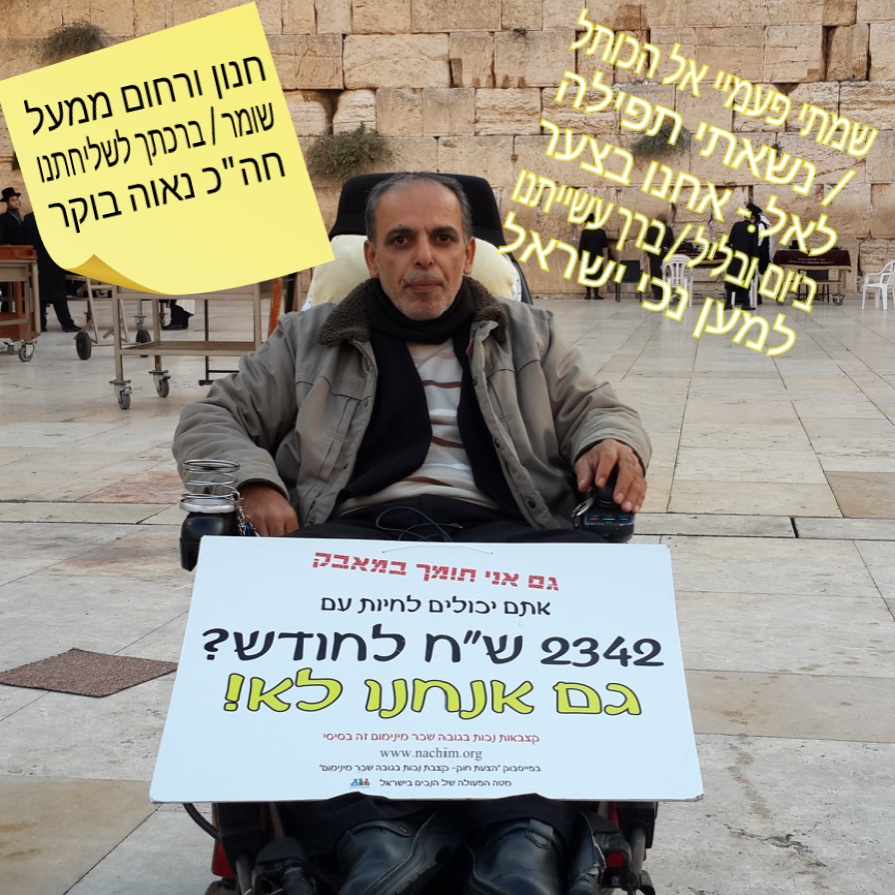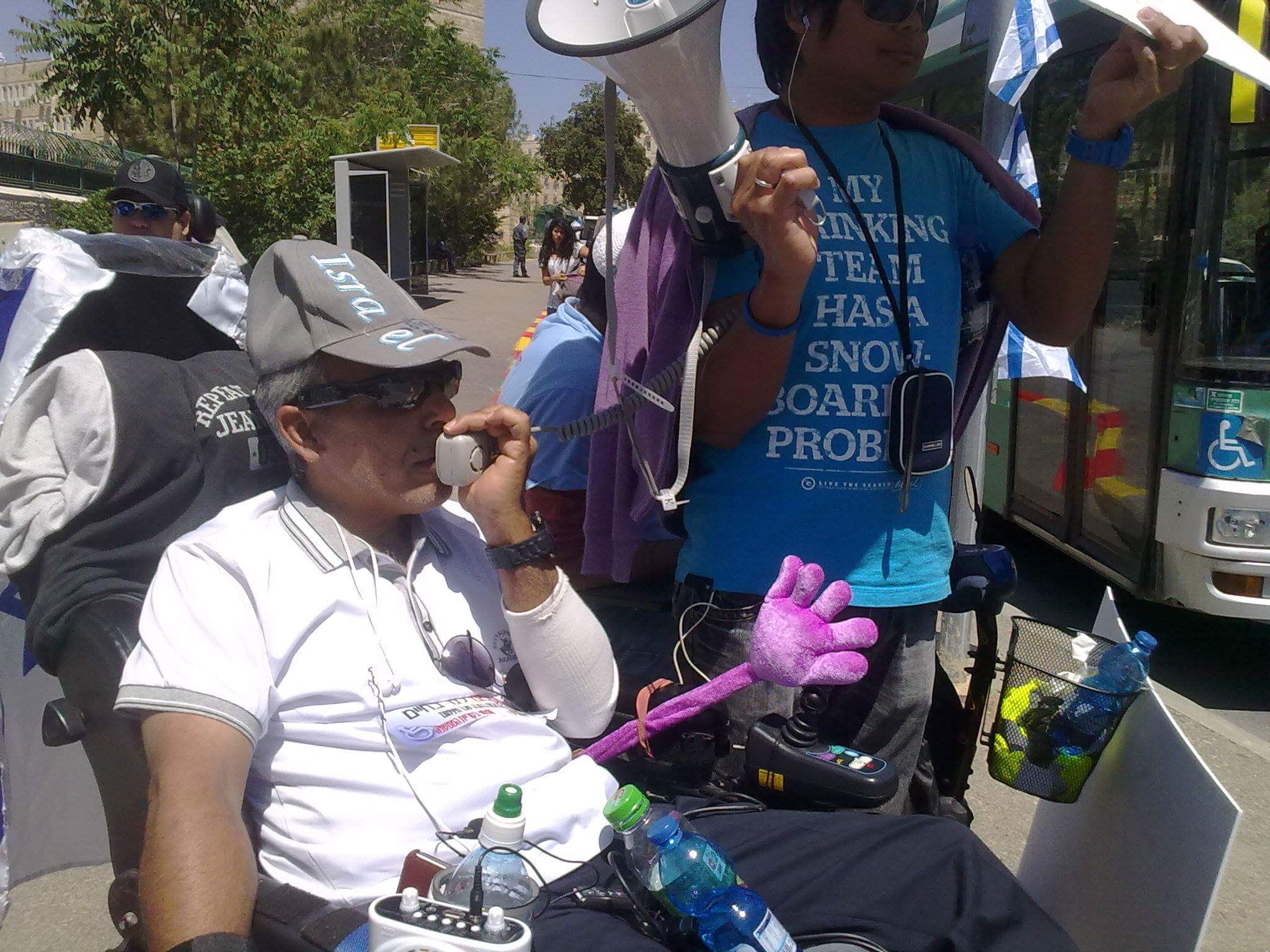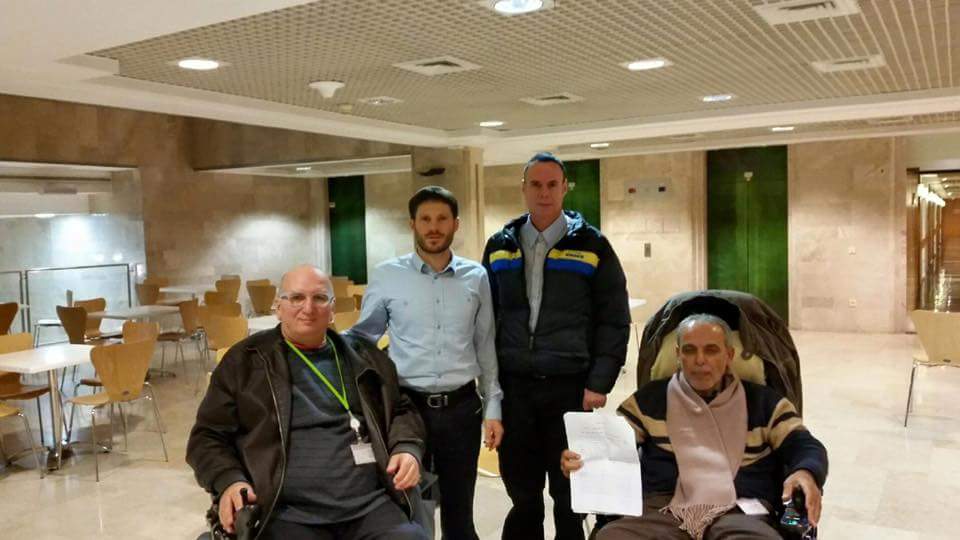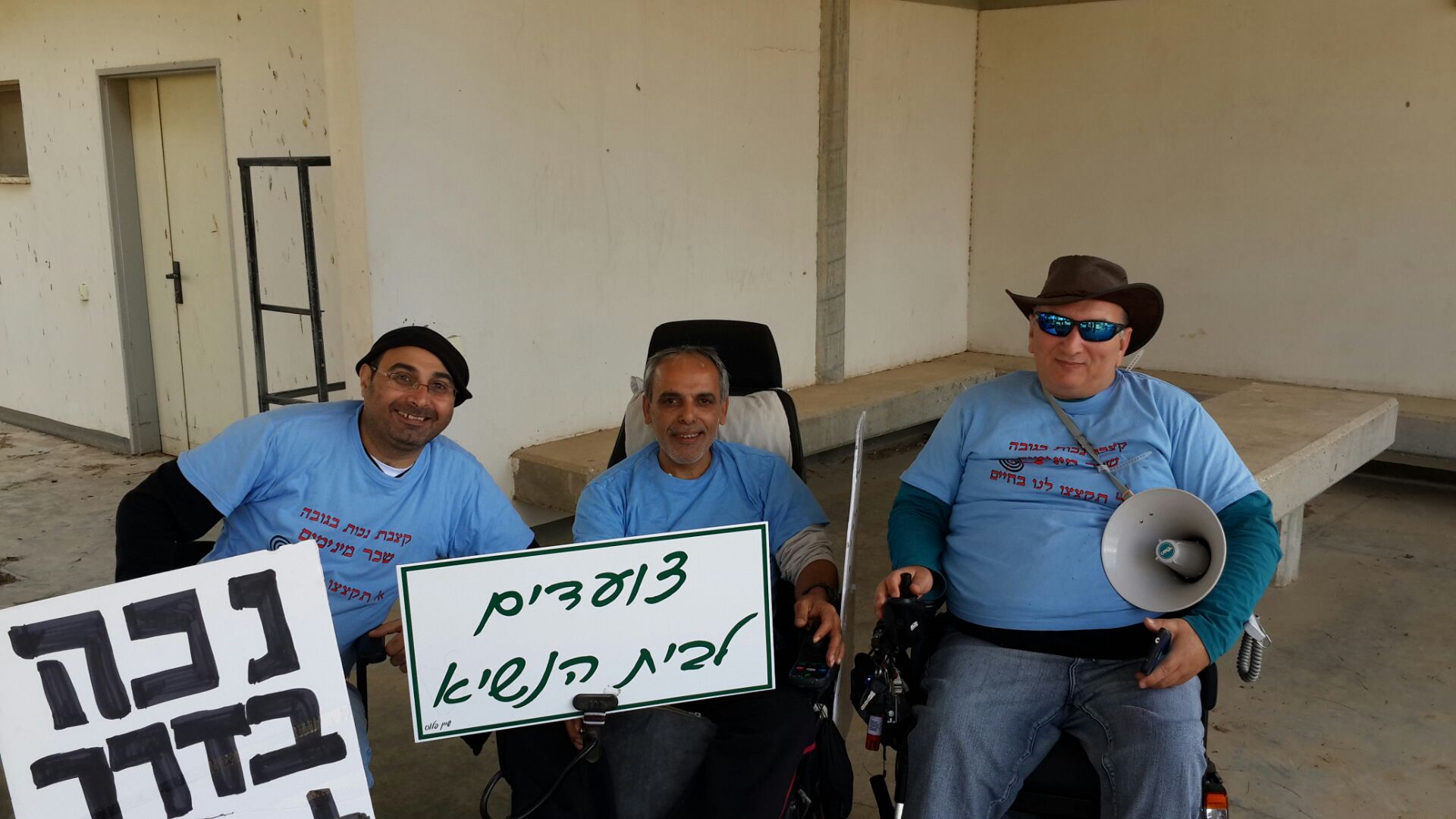Yaron Levy: "For Ten Years I Haven't Slept at Night Due to Severe Pain, Yet I Am a Rich Man Happy with My Lot"
Yaron Levy is considered one of the most suffering individuals in the country; he is confined to a wheelchair with paralyzed legs. Despite this, he is actively working for the rights of people with disabilities in Israel. Today, he plans to arrive at the Knesset to protest for an increase in the meager disability allowance. "One in eight citizens in Israel could become disabled in their lifetime. Won't you help us?"
 Yaron Levy
Yaron LevyThis afternoon it is set to happen: the Knesset's winter session will open, and dozens of disabled individuals and their families will gather at the location. They plan to visit the Finance Minister's office and meet with Knesset members and ministers, with one goal: to advocate for raising Israel's disability pensions to at least match the minimum wage.
Behind this initiative is Yaron Levy, Chairman of the 'Disabled Action Organization,' who has found himself fighting for disability rights over the past decade, doing everything possible to assist them.

From a Healthy Man to a Wheelchair
If you had met Yaron a decade ago, you would have seen an active, young, strong man full of energy and capabilities. But one day, while returning from work, he found himself arriving home and collapsed at the entrance. He tried to get up, but his right leg was inexplicably locked at a 180-degree angle, unable to bend.
This was no nightmare; it was reality. Yaron recalls not knowing what was happening. His frightened wife called an ambulance, and Yaron was taken to Tel Hashomer hospital, suffering severe pain, fear, and dread. Initially, doctors struggled to diagnose the young man before them. Yaron underwent an extensive series of invasive tests, ultimately leading to a surgery at Tel Hashomer. After the surgery, he underwent rehabilitation, managing to walk with crutches, but this also didn't last, and eventually, he found himself in a motorized wheelchair. Now confined, unable to move his legs, with a damaged spine, he remains optimistic.

When Yaron talks to us, he sounds optimistic and energetic, but when he speaks about himself, he admits: "I'm in a lot of pain. I've barely slept more than a few minutes at a time for ten years due to sharp pains. One renowned doctor told me that he attended a European pain conference and presented me as one of the three most suffering individuals in Israel. Though there's no concrete tool to measure pain, according to the criteria set by the committee, I'm classified as one of the three most suffering individuals."

How do you manage to smile in such a situation?
"I am rich and happy with my lot," he provides an astonishing answer. "I don't smile despite everything but because of everything. Now I understand something a healthy person finds difficult to grasp: as long as the heart beats, the brain works, the eyes see, the ears hear, the mouth speaks and eats, and the soul is uplifted—nothing more is needed. The body is secondary."
Yaron also adds, "Whenever it's hard for me, I remind myself that we are in a generation of hidden faces. We don't understand why everything happens, but without a doubt, what I'm going through is best for me, and I know another thing—everything is from Him."
The Good Angel of the Disabled
Upon realizing his life changed and would never be the same, Yaron chose to change his life perspective. "As the days passed, I understood how being disabled in Israel is not easy. The allowances are never enough, medicines are expensive, accessibility is lacking, suitable regard is insufficient, and society is utterly unaware of your needs. After my own arduous journey, I decided to dedicate all my abilities to helping other disabled people rather than returning to work. Helping those unable to fight their own hard battles but in dire need of someone to save them."
Thus, he began receiving very tough requests—disabled individuals fighting the national insurance that doesn’t recognize their rights, people unable to gain mobility suggestions for tailored vehicles, people who adjusted their homes for their needs, only to find contractors not fulfilling promises, and more.

Yaron especially focuses on cases of disabled children, where injustices are particularly harsh. "Instead of encouraging parents of special children who choose to keep them at home instead of sending them to an institution, the state imposes difficulties. It's so absurd because when a special child is in an institution the state pays 20,000 shekels, but when at home, the allowances are scant. I have no words to describe the hard path these parents go through, and I do everything to help them. It's unimaginable for a ventilated child needing medical assistance to attend kindergarten without a nurse because the Ministry of Health determined a nurse is allowed 'for only five hours a week,' or for a family with a wheelchair-bound child repeatedly denied a foreign worker. This is an impossible situation, and to correct it, I fight until my last drop of blood. I reached a state where hearing about an injustice without intervening is intolerable. So I travel across the country to help anyone I can, always praying to the Creator and asking for the tools to help. But unfortunately, there are also cases where my tools aren’t sufficient, and not every battle is won."
Raise the Allowances
As mentioned, Yaron is busy fighting for increased allowances for adult disabled individuals. "You need to understand that out of 230,000 severely disabled people in Israel, 187,000 survive only on a disability pension of 2,342 shekels per month. It's impossible, and my aspiration is to raise the disability allowance to a level of minimum wage, as the state itself acknowledges that minimum wage is what a person needs to live, and surely a disabled person needs more."
He further adds, "We're told to save on medicines, cut food expenses, but we've done that already. Truly we have nowhere else to cut, and from meetings with over 80 Knesset members, we also concluded that the state definitely has where to find the budgets, it's just a matter of will."

As part of the effort for this vital goal, Yaron will be at the Knesset today, and not just him, but a large group of demonstrators. "I call on anyone who cares about this issue to join me," he emphasizes. "The statistics show that one in eight people in Israel might suffer from disability in their lifetime, and 8,000 new disabled individuals are added to the country each year. This topic should concern every single person in Israel, not just us."

